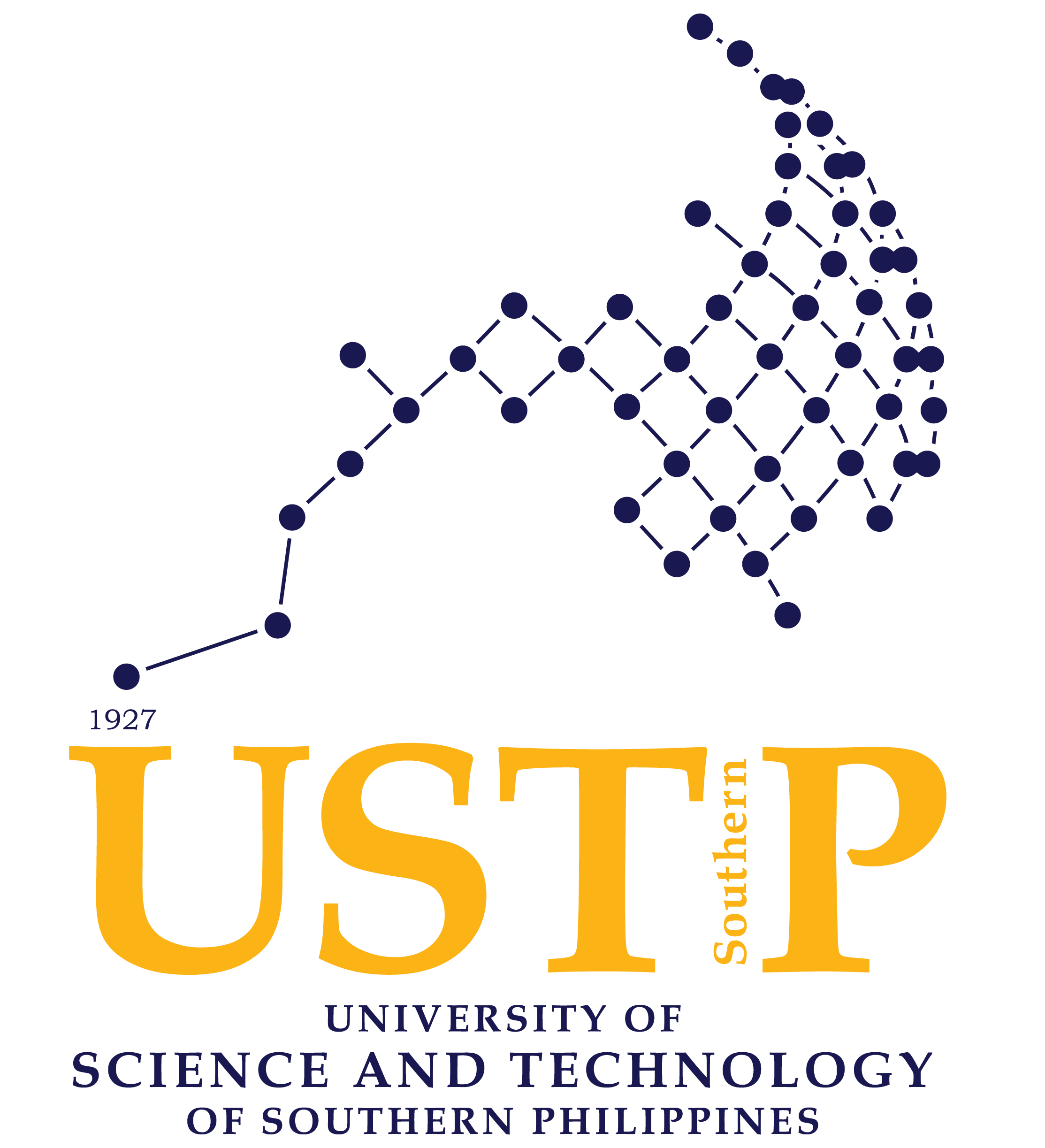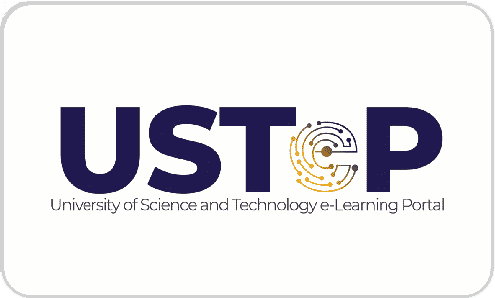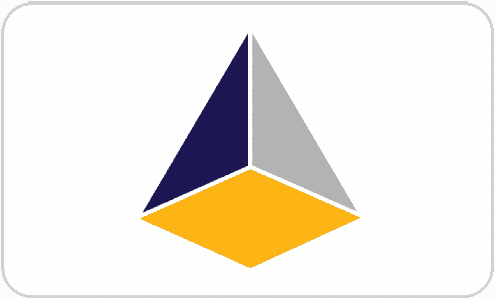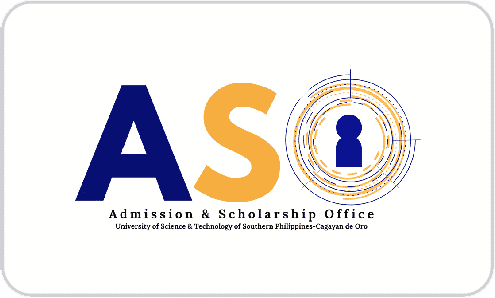USTP GSFI concludes 2024 Research Forum
By Lea May N. Caburatan, USTP System STRATCOMM
Share:
The Graduate School Foundation, Inc. (GSFI) of the University of Science and Technology of Southern Philippines in Cagayan de Oro (USTP CDO) successfully concluded its 2024 Research Forum on May 18, 2024, at the Performing Arts Theatre, Cagayan de Oro City. This year’s theme, Innovation at the Intersection: Exploring the Role of Artificial Intelligence in Graduate Research and Education, emphasizes the transformative potential of artificial intelligence in advancing graduate research and education.
Exploring AI in Research and Collaboration
Engr. Alex L. Maureal, Vice Chancellor for Research and Innovation (VCRI) of USTP CDO, highlighted the forum’s objective to harness AI as a potent educational tool. Engr. Maureal acknowledged the historical challenge of research utilization, noting that research often fails to influence government policy and planning. He stressed the importance of ensuring that research addresses real-world problems and finds its end-users. He also emphasized that the research disseminated at this conference advances academic excellence and fortifies the university’s role as a hub for innovation and intellectual growth.
“AI has enabled us to make our work faster,” Engr. Maureal noted, urging researchers to leverage AI tools to identify and address problems more effectively.
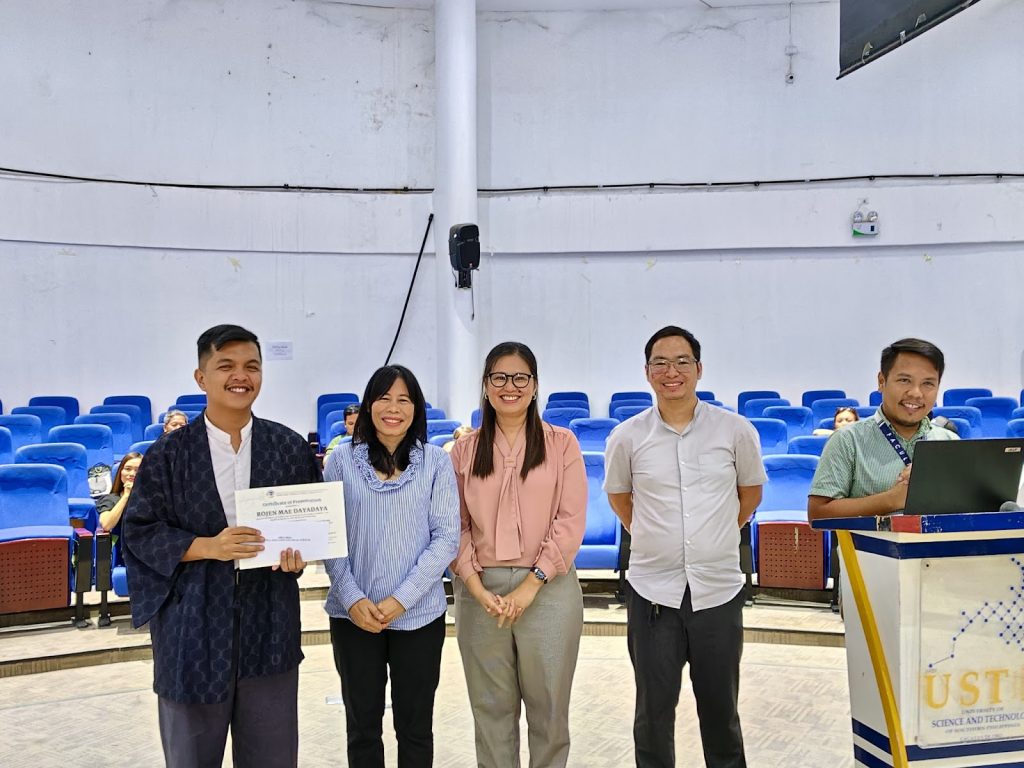
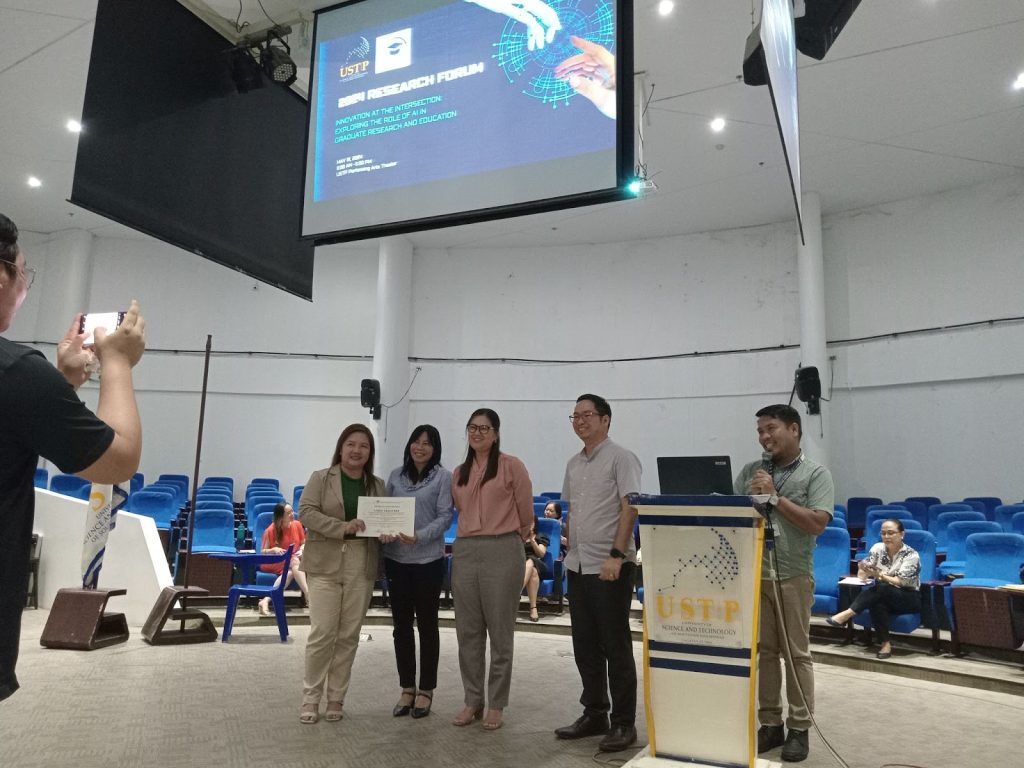
Plenary Talks
Dr. Rowena P. Varela of Caraga State University (CSU) introduced the necessity of interdisciplinary approaches to tackle complex societal problems and align research efforts with Sustainable Development Goals (SDGs). She discussed the power of cross-disciplinary collaboration, emphasizing AI as a collaborator in research, facilitating brainstorming and organization of thoughts. However, she cautioned against over-reliance on AI, urging researchers to bring their unique perspectives and critical thinking to their work.
Dr. Franch Maverick A. Lorilla, Director of the Innovation Centers of USTP, provided an overview of AI generative models and how to unlock creativity and innovation in research. He highlighted that gaining the advantage of AI will depend on the quality of data and the significance of researchers generating original content. Dr. Lorilla stressed that while AI can enhance research capabilities by generating large data sets and aiding in hypothesis generation and validation, the quality of AI output hinges on the specificity and quality of user prompts.
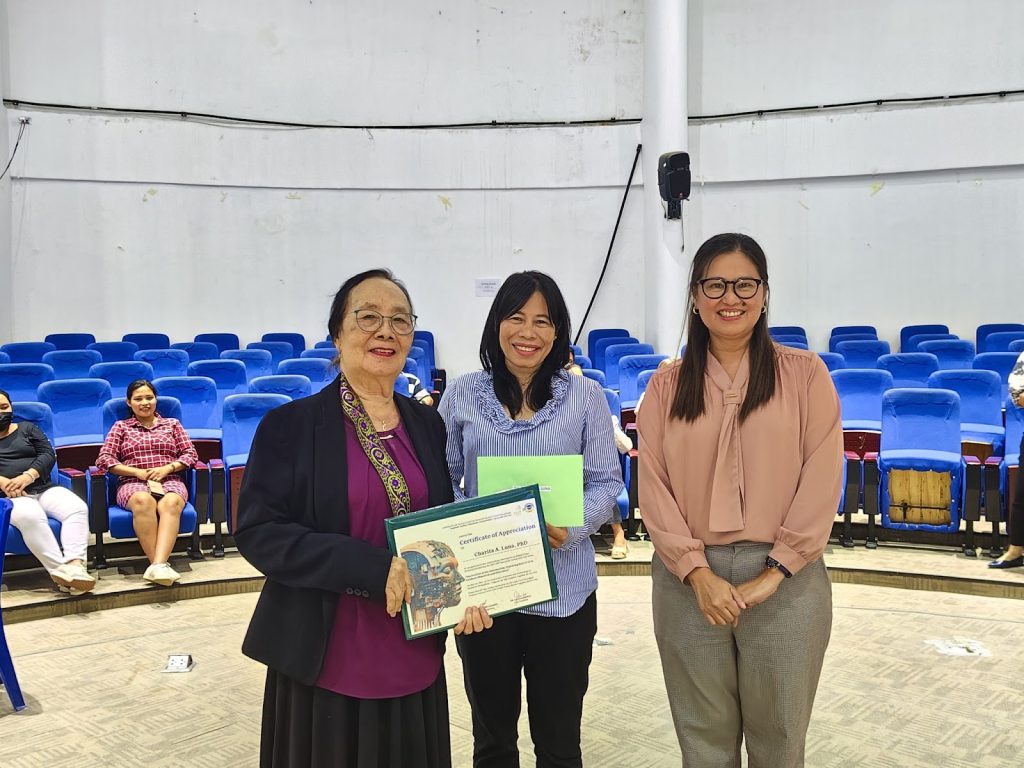
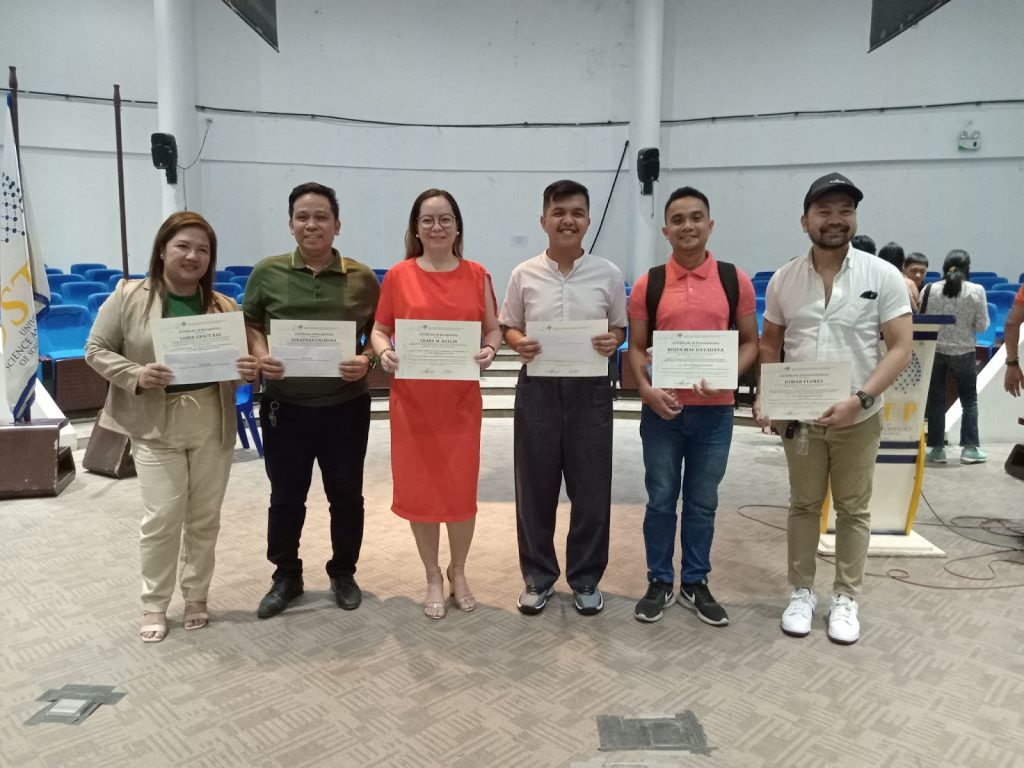
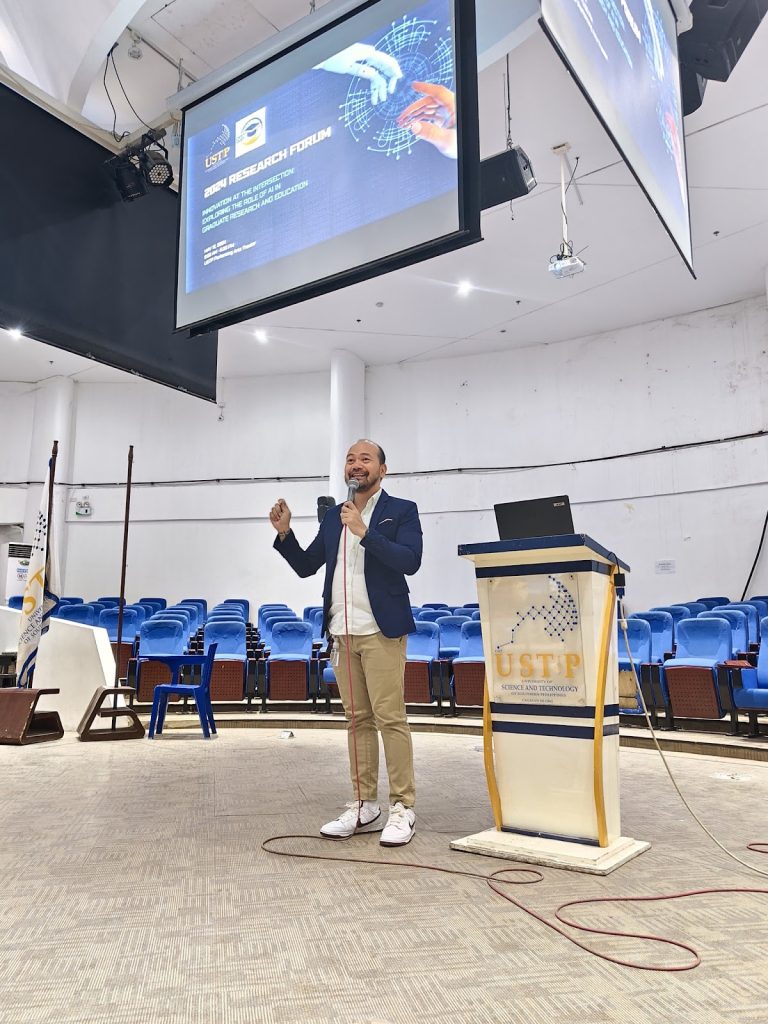
Parallel Sessions
In the afternoon, parallel sessions included studies from Stream A: Education, Humanities, and Social Sciences and Stream B: Engineering and Applied Sciences. A total of 23 presenters shared their research across the two streams. Charita A. Luna, Ph.D., Maristela Binongo-Sy, Ph.D., and Francis Thaise A Cimene, Ph.D. serve as judges for presenters in Stream A, while Romeo del Rosario, Ph.D., Dennis A Tarepe, Ph.D., Antonio Abdu Magomnang, D.Engg. for Stream B.
Notable research presentations included:
Stream A: Education, Humanities, and Social Sciences:
- 1st Place: Joevi Jhun A. Idul with “Integrating Green Chemistry And Sustainability Principles To Secondary Science Curriculum: A Mixed-Methods Needs Assessment”
- 2nd Place: Jovanne Tatoy with “Effect of Virtual Role-Playing Games on Student’s Performance Level in Electrical Installation and Maintenance Subject”
- 3rd Place: Kennet Cuarteros with “Teacher-Student Perception of Senior High School Mathematics Textbook”
Stream B: Engineering and Applied Sciences:
- 1st Place: Jonathan B. Calibara with “Evaluation on the Engineering Properties of Cement-Treated Base With the Application of Crushed Mangima Aggregate as Road Base Material”
- 2nd Place: Shara Baylin with “Modeling Teachers’ and Students’ Procrastination Using Gaussian – Bernoulli Mixed Naïve Bayes Method”
- 3rd Place: Linda Grace Baz with “Optimizing Aerial Search and Rescue Operations Using Deep Learning For Real-Time Human Detection And Counting With Recreational Drone”
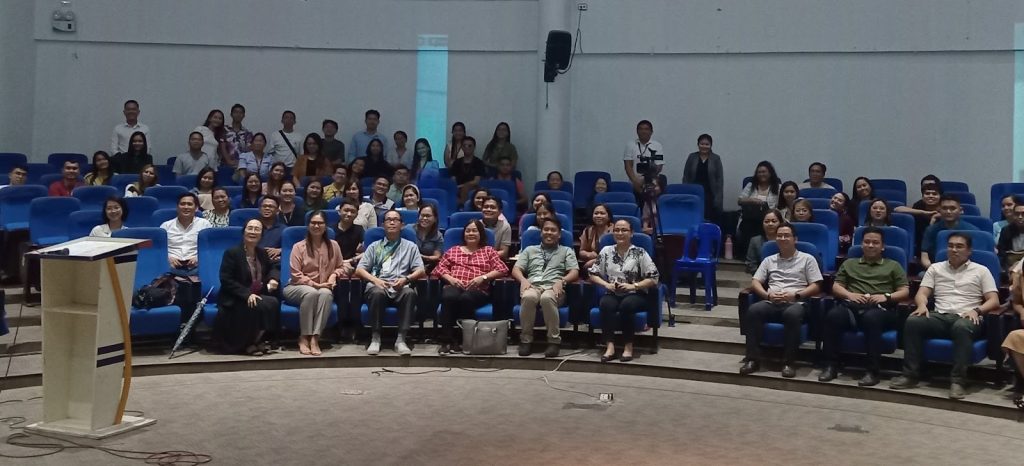
Research and Innovation to Community
The forum provided a valuable platform for researchers and graduate students to network, forge collaborations, and explore the practical applications of their work, demonstrating the tangible impact of their research on the community.
The event underscored USTP’s dedication to nurturing future researchers, leaders, innovators, and scientists through the integration of AI in academic and practical endeavors, fulfilling its commitment to becoming a nationally recognized leader in science and technology.
GFSI hopes that the scientific gathering will continue inspiring students to do research that is aligned with the community’s aspirations and needs.
Learn more about the studies presented in the book of abstracts.
